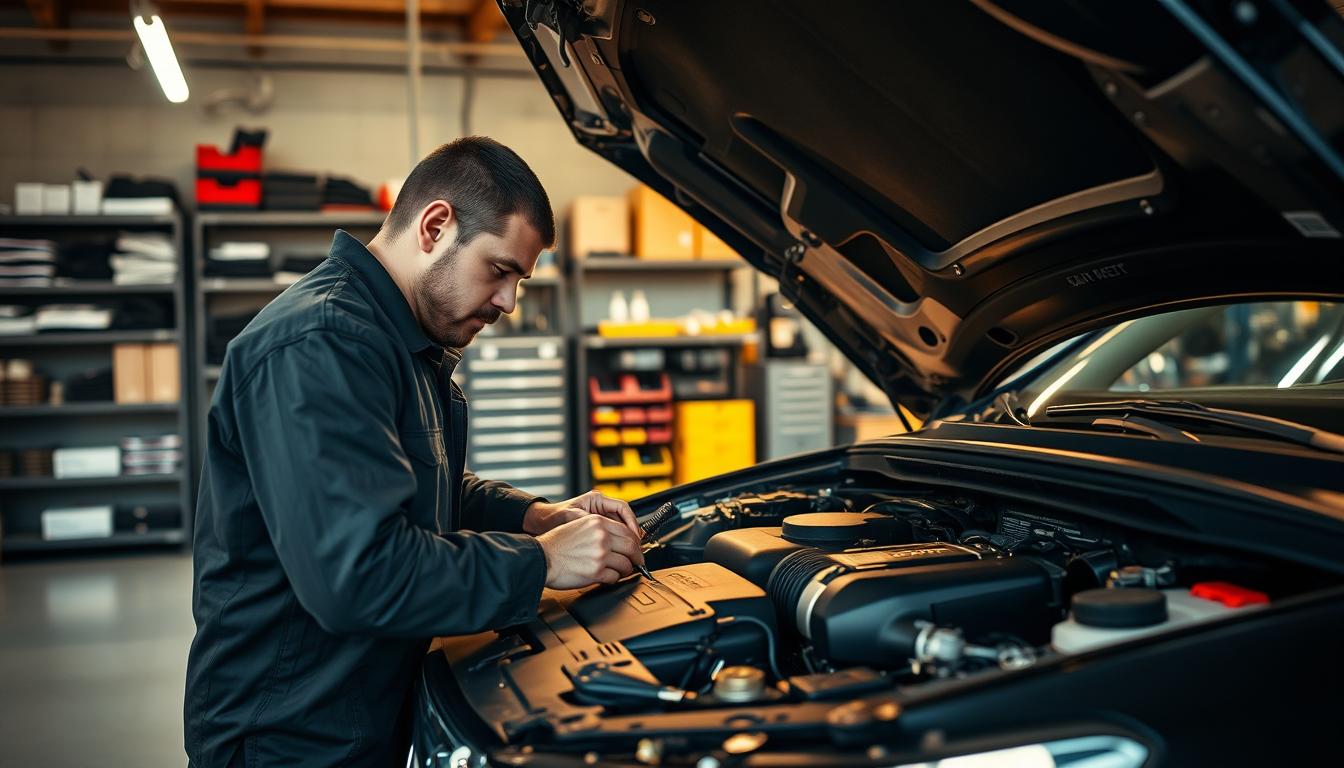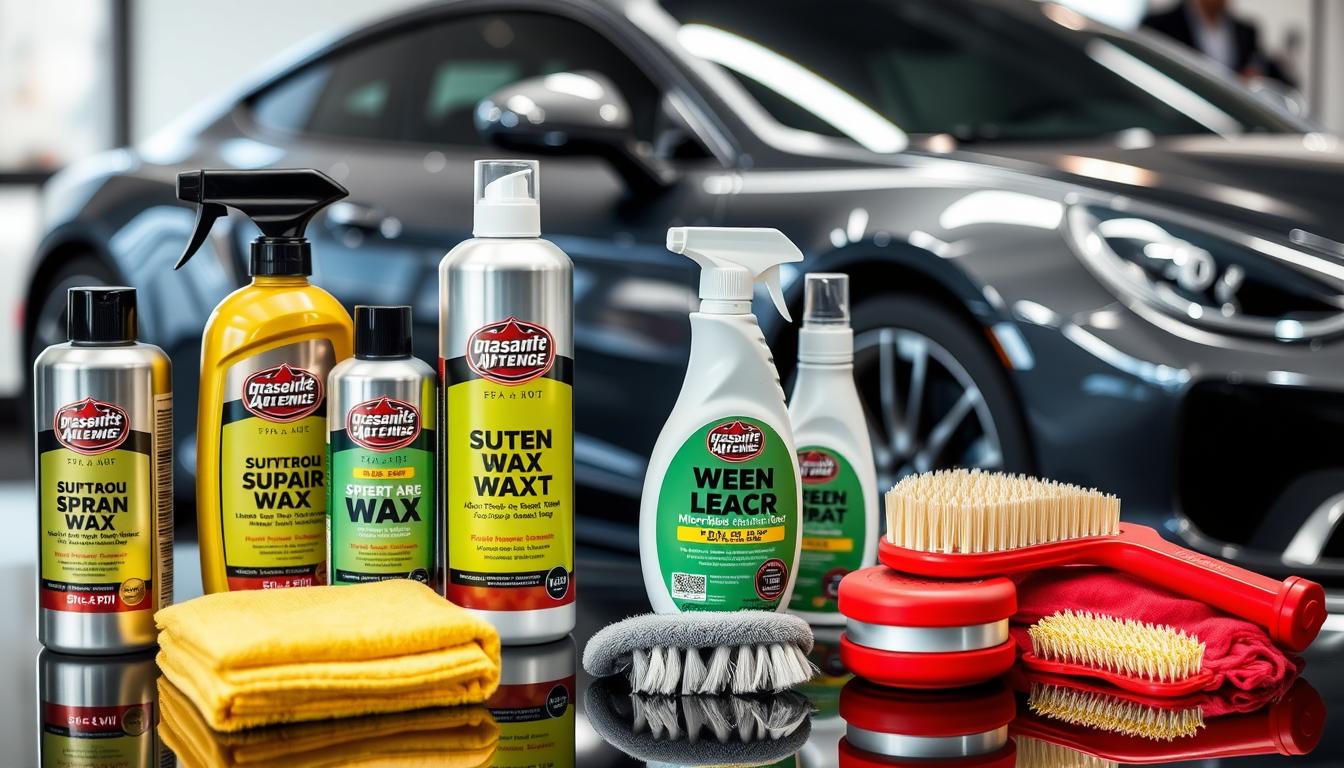As we step into 2025, it’s the perfect time to focus on resolutions that not only improve your life but also benefit your car. Your vehicle is a vital part of your daily routine, and taking care of it ensures safety, reliability, and cost savings.
With a few proactive steps, you can keep your car running smoothly all year long. Regular maintenance isn’t just about preventing breakdowns—it’s about maximizing your vehicle’s lifespan and maintaining its value over time. For personalized maintenance advice, you can reach out to our experts via WhatsApp at +44-7822010953.
Key Takeaways
- Regular maintenance is crucial for your vehicle’s longevity.
- Proactive steps can help you avoid costly repairs.
- Maximizing your vehicle’s lifespan maintains its value.
- Personalized maintenance advice is available for your specific needs.
- Staying on top of car care ensures safety and reliability.
Why Regular Vehicle Maintenance Matters in 2025
As we navigate through 2025, the importance of regular vehicle maintenance cannot be overstated. Driving in areas like SoCal can be particularly challenging due to the frequent stop-and-go traffic, long commutes, and extreme weather conditions. Regular maintenance not only prevents breakdowns but also ensures a smooth, safe ride.
The Cost Benefits of Preventative Maintenance
Regular preventative maintenance helps you avoid costly repairs by addressing small issues before they escalate into major mechanical failures. By staying on top of maintenance, you can enjoy several financial benefits, including improved fuel efficiency, reduced repair costs, and a higher resale value for your vehicle. For instance, regular oil changes and tire rotations can significantly enhance your car’s fuel efficiency, saving you money on gas over time.
Moreover, a well-maintained vehicle is less likely to require expensive repairs. According to experts, neglecting regular maintenance can lead to premature wear and tear on critical components, resulting in costly fixes down the line. By investing in preventative maintenance, you can avoid these unnecessary expenses and keep your vehicle running smoothly. For more detailed guidance on maintaining your vehicle, you can refer to The Ultimate 2025 Car Care Guide.
Safety Considerations for Modern Vehicles
Safety considerations have evolved significantly with modern vehicles, which come equipped with advanced safety features that require regular checks and calibration to function properly. Proper maintenance directly impacts the effectiveness of these safety systems, ensuring that your vehicle remains safe to drive. For example, maintaining your vehicle’s brakes and tires is crucial for preventing accidents and protecting occupants.
- Regular maintenance helps prevent breakdowns and ensures vehicle safety.
- Advanced safety features in modern vehicles require regular checks.
- Neglecting maintenance can compromise vehicle safety and performance.
By prioritizing regular vehicle maintenance, you can enjoy peace of mind knowing that your car is in good shape and ready for the road ahead. Whether you’re driving through crowded city streets or taking a long road trip, a well-maintained vehicle is essential for a safe and enjoyable journey.
Essential Engine Care for Longevity
As we move into 2025, maintaining your vehicle’s engine remains crucial for its longevity and performance. Proper engine care is foundational to ensuring your vehicle runs smoothly and efficiently.
Regular Oil Changes: The Lifeblood of Your Engine
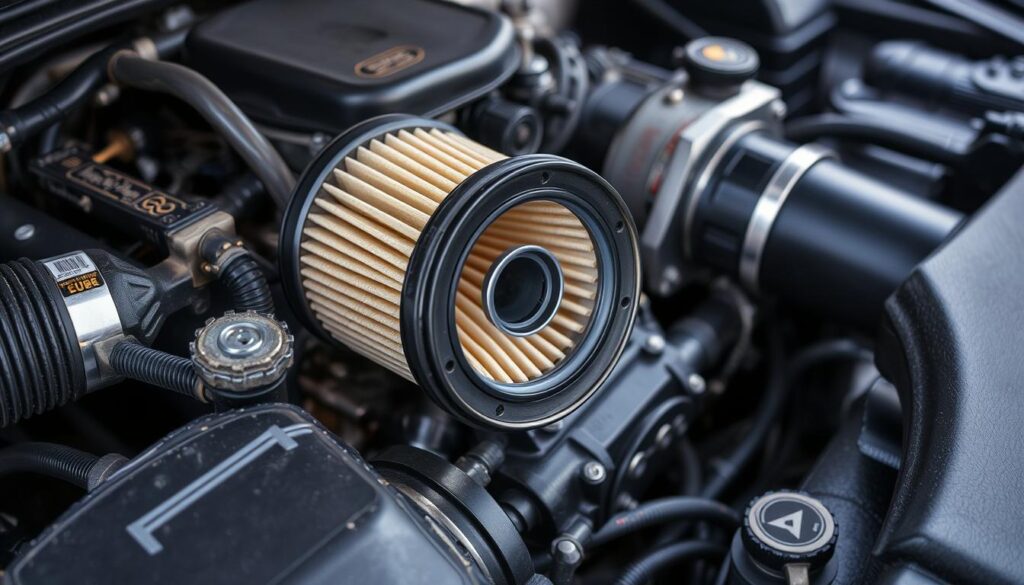
Regular oil changes are vital for your engine’s health. Fresh oil lubricates the engine, reduces wear, and improves fuel efficiency. The frequency of oil changes depends on your vehicle type and driving conditions. Check your owner’s manual for the recommended schedule.
Air Filter Replacement Schedule
Air filters play a critical role in maintaining engine performance by blocking dirt and debris. Over time, they can become clogged, reducing airflow and affecting fuel efficiency. Refer to your owner’s manual for the recommended air filter replacement schedule.
Monitoring Engine Performance Indicators
Keeping an eye on your engine’s performance indicators, such as unusual sounds or changes in fuel efficiency, can help you identify potential issues early. Regular monitoring allows you to address problems before they become major repairs.
Tire Maintenance for Safety and Efficiency
As we drive into 2025, maintaining our tires correctly is vital for safe and efficient driving. Proper tire maintenance directly impacts both safety and fuel efficiency. Under-inflated tires can hurt your gas mileage and increase the risk of a blowout, while over-inflated ones might wear unevenly.
Proper Tire Pressure Checks
Make it a habit to check your tire pressure monthly and before long trips. Use a reliable tire gauge to measure the pressure, comparing it to the recommended levels in your vehicle’s manual or the driver’s side door jamb.
Rotation and Alignment Schedules
Regular tire rotation and proper wheel alignment are essential for even tire wear and improved handling. We recommend following the rotation schedule outlined in your vehicle’s manual and having your wheel alignment checked periodically.
Tread Depth Monitoring Techniques
Inspect the tread depth for safety. A quick way to check is the penny test: insert a penny into the tread with Lincoln’s head upside down. If you can see his entire head, it’s time for new tires.
By following these tire maintenance tips, you can ensure your vehicle runs safely and efficiently, optimizing both tire life and fuel efficiency.
Tips to Keep Your Vehicle Running Smoothly | Essential Car Care Guide 2025
Keeping your car in top condition involves more than just routine checks; it demands a deeper understanding of its critical systems. As we navigate through 2025, maintaining your vehicle’s performance and longevity is crucial.
One of the key areas to focus on is Transmission Fluid Maintenance. Your transmission is vital for smooth gear shifts, especially when driving through crowded freeways or winding roads. Regular checks of the transmission fluid level and quality are essential to prevent slipping or hesitation.
Transmission Fluid Maintenance
To maintain your transmission, check the fluid levels regularly and look for signs of degradation. If you notice any issues, such as slipping or hesitation, it’s time to have your transmission serviced.
Brake System Care and Inspection
Brake maintenance is critical for safety. Listen for squeaking or grinding noises, which can indicate worn brake pads. Checking the brake fluid level and quality is also vital; low or dirty fluid can significantly impact braking efficiency.
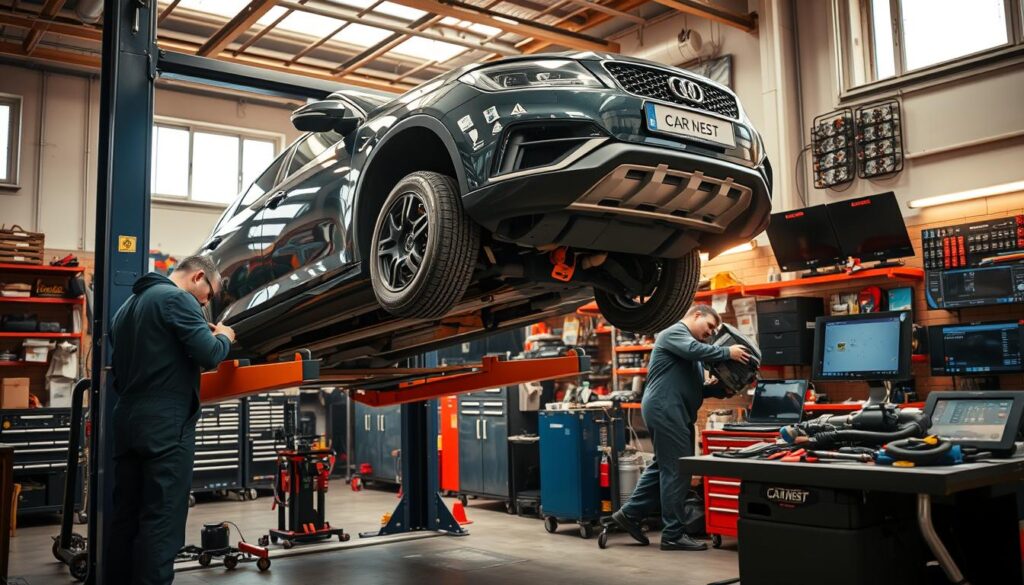
Power Steering System Checks
Don’t overlook the importance of power steering system checks. These checks can help prevent steering issues and ensure your vehicle remains easy to maneuver. If you notice any signs of trouble, such as stiff steering or unusual noises, seek professional assistance.
By focusing on these critical areas and maintaining proper fluid levels and quality, you can ensure your vehicle runs smoothly throughout 2025. For personalized advice, contact our experts via WhatsApp at +44-7822010953.
Battery and Electrical System Maintenance
The sophisticated electronics in modern vehicles make battery and electrical system maintenance more important than ever. As we rely on our cars for daily commutes and long road trips, ensuring that the battery and electrical system are in good condition is crucial.
Signs of Battery Deterioration
Recognizing the signs of battery deterioration can save you time and prevent unexpected breakdowns. Look out for dimming headlights, slow engine crank, or the battery warning light on your dashboard. These signs indicate that your car battery may be nearing the end of its lifespan.
Terminal Cleaning and Connection Checks
Regularly cleaning the battery terminals and checking connections is a simple yet effective maintenance task. Corrosion on the terminals can lead to electrical issues, so ensure they are clean and secure. This is particularly important in areas with extreme weather conditions.
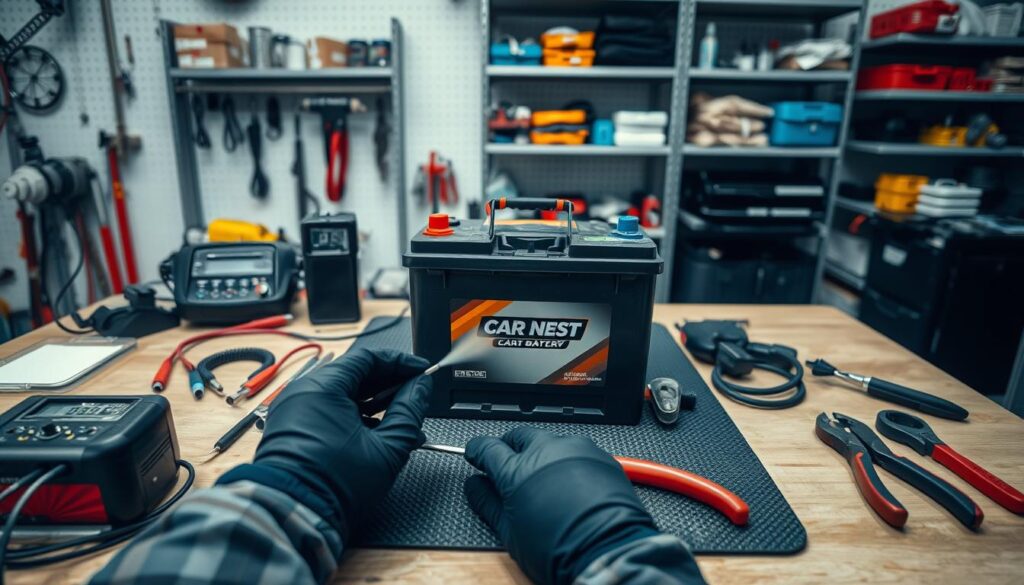
Alternator Performance Monitoring
Your car‘s alternator plays a critical role in charging the battery and powering electrical systems. Monitoring its performance can help prevent battery drain and other issues. Look for signs of alternator failure, such as dim or flickering lights, and have it tested if you notice any problems.
| Maintenance Task | Frequency | Benefit |
|---|---|---|
| Battery Terminal Cleaning | Every 3 months | Prevents corrosion and electrical issues |
| Battery Condition Check | Every 6 months | Identifies potential issues before they become major problems |
| Alternator Performance Test | Annually | Ensures the alternator is charging the battery correctly |
By following these maintenance tips, you can extend the life of your car battery and ensure your vehicle’s electrical system operates smoothly.
Seasonal Vehicle Care Strategies
To keep your vehicle running smoothly, it’s essential to adapt your maintenance routine to the changing seasons. Different weather conditions can significantly impact your car’s performance and longevity.
Summer Heat Protection Measures
In the summer, it’s crucial to ensure your air conditioning system is functioning correctly. Check your coolant levels regularly to prevent overheating, which can cause significant damage to your engine.
Regular checks can help you identify potential issues before they become major problems.
Winter Preparation Essentials
For winter, inspect your heating system to ensure it’s working properly. Consider switching to winter tires for improved traction on snowy and icy roads.
Spring and Fall Maintenance Checklists
Spring and fall are ideal times for comprehensive maintenance checks. Use these seasons to inspect your vehicle’s systems and address any issues.
| Season | Maintenance Tasks |
|---|---|
| Summer | Check coolant levels, inspect air conditioning system |
| Winter | Inspect heating system, consider winter tires |
| Spring/Fall | Comprehensive maintenance checks, inspect vehicle systems |
By adapting your maintenance routine to the changing seasons, you can help extend your vehicle’s life and improve its reliability in all weather conditions.
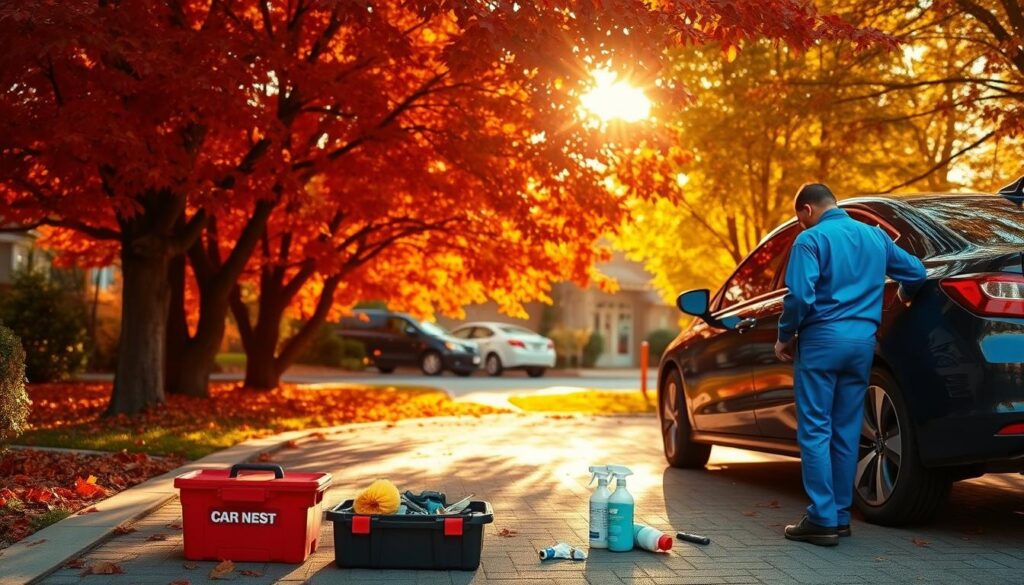
Exterior and Interior Maintenance Tips
Maintaining your vehicle’s exterior and interior is crucial for both its longevity and your driving experience in 2025. Regular maintenance not only keeps your car looking great but also protects its finish from the elements.
Paint Protection and Washing Techniques
Regular washing and waxing are essential to protect your car’s paint from dirt, salt, and other contaminants that can lead to rust. Wash your car every few weeks and apply a coat of wax every few months.
Windshield and Wiper Blade Care
Clear visibility is pivotal for safe driving, especially in bad weather. Wiper blades can wear out, leading to streaks and reduced effectiveness. Replace them every six to twelve months or sooner if they show signs of wear.
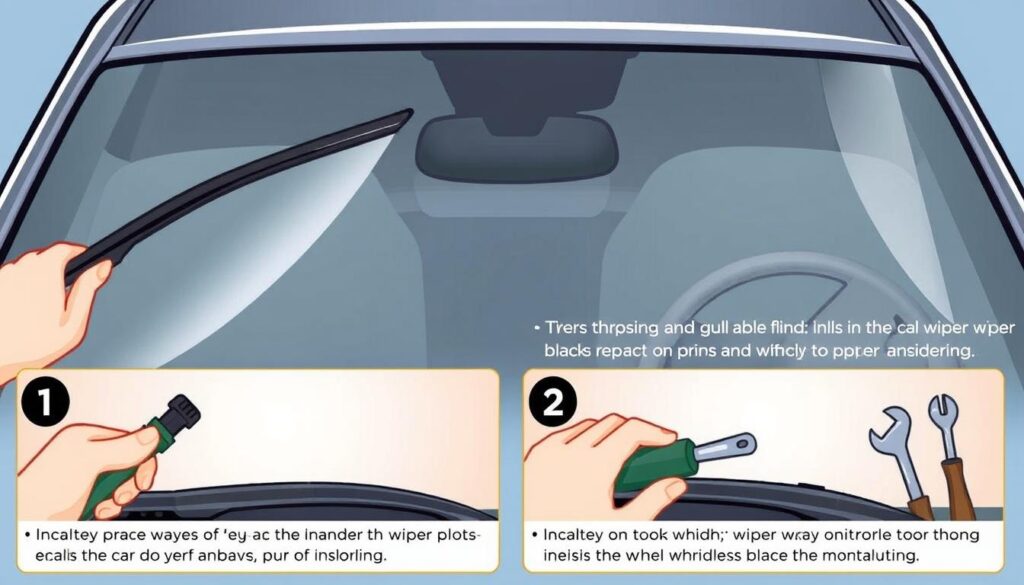
Interior Cleaning for Longevity
Interior cleaning protects surfaces from premature wear and maintains air quality. Regular vacuuming and wiping down surfaces with appropriate cleaners can keep your vehicle’s interior in great condition.
Creating an Effective Maintenance Schedule
To ensure your vehicle remains in top condition, developing a comprehensive maintenance schedule is essential. This schedule helps you stay organized and ensures that your car receives the necessary care at the right time.
Digital Tools for Maintenance Tracking
Digital maintenance tracking tools have revolutionized vehicle care. We recommend exploring car maintenance tracking apps to keep your maintenance on schedule. These apps allow you to track maintenance deadlines, record service history, and receive reminders for upcoming maintenance tasks.
Owner’s Manual Recommendations
Your owner’s manual contains manufacturer-specific maintenance recommendations. It’s crucial to interpret and implement these guidelines to ensure your vehicle receives the right care. We can help you understand the recommendations and incorporate them into your maintenance schedule.
Professional Service Intervals
While regular self-maintenance is helpful, professional inspections can identify potential issues that might go unnoticed. Schedule a comprehensive inspection at least once per year to extend your vehicle’s lifespan and maintain its performance. For professional maintenance assistance and personalized schedule creation, contact our experts via WhatsApp at +44-7822010953.
Conclusion: Driving Confidently Through 2025 and Beyond
As we step into 2025, it’s clear that maintaining your vehicle is crucial for a stress-free driving experience. By following the essential maintenance tips outlined in this guide, you’ll be well-equipped to keep your car running smoothly and safely throughout the year.
Regular vehicle maintenance is the best way to ensure your vehicle’s critical systems, including brakes and transmission, function optimally. By checking fluid levels, monitoring tire pressure, and replacing wiper blades as needed, you’ll be investing in your safety and savings.
For ongoing support and advice throughout 2025, feel free to contact our experts via WhatsApp at +44-7822010953. Let’s make 2025 the year of reliable, stress-free driving.
